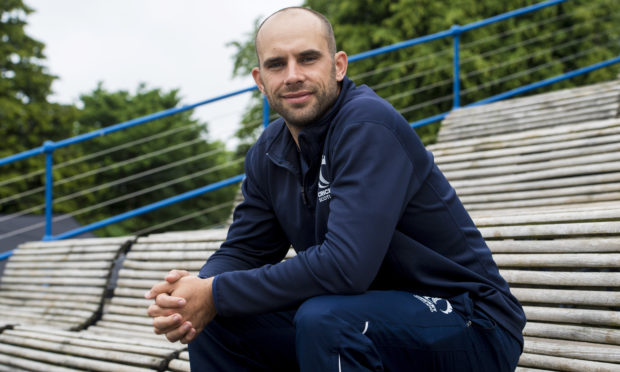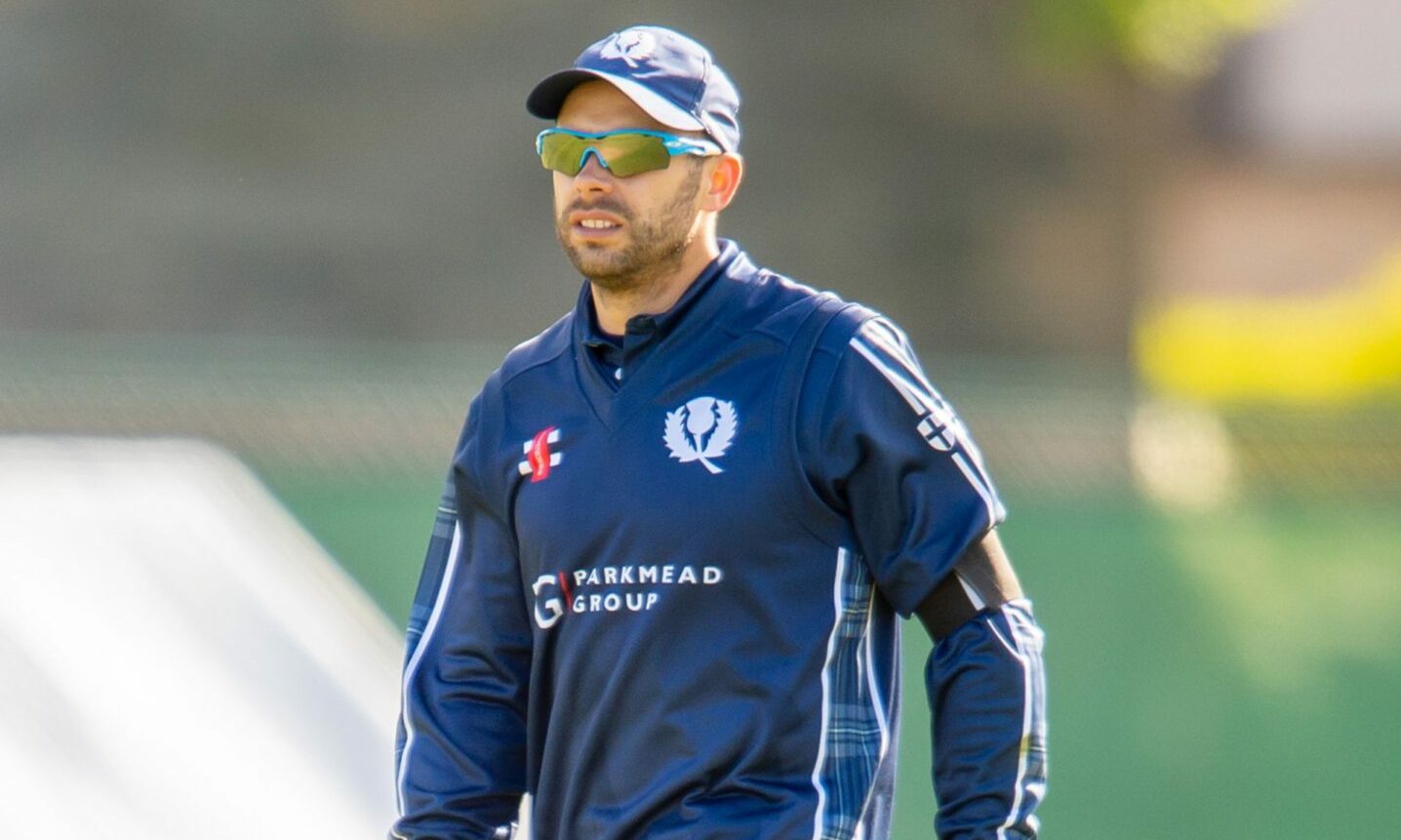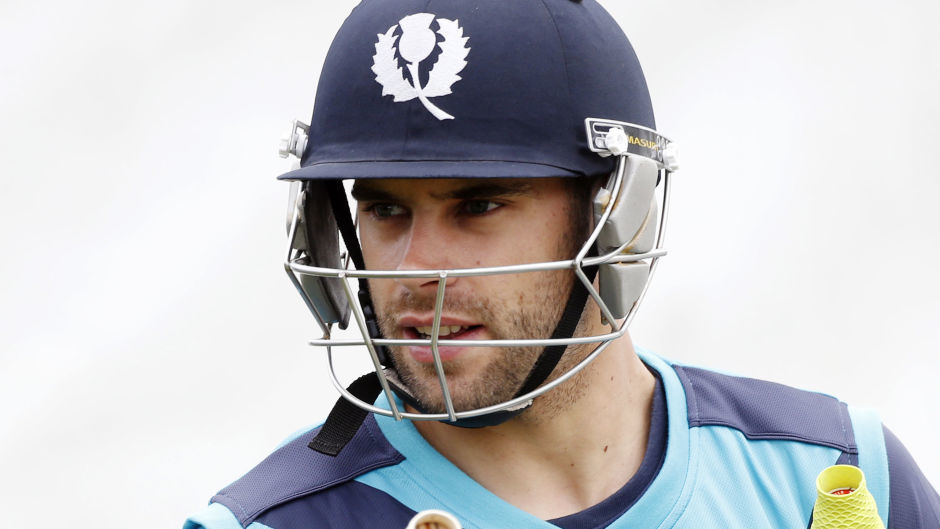Kyle Coetzer was never a man for flamboyant gestures or chasing the limelight. Others could hog the headlines as long as he could focus on cricket.
Yet what an impression the Aberdonian has made on the game in the last 20 years.
Much of his career has been spent on the grind of the English county circuit, whether with Durham or Northants, but he made the decision early on to commit to the sport 100% and it has yielded a rich dividend, both for him and his country.
There was little surprise when the 38-year-old finally announced his retirement last week to concentrate on coaching, but perhaps the tributes should have been a little more fulsome.
Because I firmly believe that if everybody in a Scotland shirt had followed his example, made the most of their talents and adopted a professional attitude to their pursuit, he and his compatriots would now be ICC Full Members rather than continuing to languish in the twilight zone of the Associate circuit.
When I was covering the game in the late 1990s and 2000s, there was a golden generation of players who emerged with the talent and ambition to make progress beyond what the Scots had managed in previous decades.
Relentless schedule
In 2003, they won three of their first four matches in the Totesport League against the English counties; two years later, they surged to victory in the ICC Trophy in Ireland, where they defeated the hosts in the final to go through the whole tournament without a single loss.
By that stage, Coetzer was already plying his trade at Durham, methodically establishing a reputation as somebody who worked tirelessly to improve his performances.
He had his struggles with the relentless schedule of hotel check-ins and endless coach travel up and down the motorways to grounds which often contained just a handful of spectators.
But if it was an unglamorous existence, he persevered.
If there wasn’t a new contract waiting at the end of a season, he would move somewhere else.
That philosophy of have bat, will travel, was central to his pursuit of excellence.
Gradually, he became a fixture in his country’s line-up, then he was appointed captain.
He went to the 2015 World Cup and struck an imperious, boundary-studded 156 against Bangladesh in Nelson in New Zealand to parade his repertoire of strokes on the grand stage.
It remains the best-ever display by a Scot in the global competition – but sadly, Coetzer’s teammates couldn’t defend a score of 318.
Victory over England
His crowning glory came at the Grange in the summer of 2018 when he and his colleagues beat world No 1-ranked England in front of a capacity crowd in Edinburgh.
He and his north-east confrere, Matt Cross, put on more than 100 for the opening stand.
And their controlled belligerence and skill, allied to a magnificent innings from Calum MacLeod, saw numerous records being scattered to the wind.
But the frustrating thing is that such opportunities are extremely limited for Scotland.
At the time of that aforementioned ICC Trophy success, there was no reason to suppose that they couldn’t keep taking strides forward and argue they deserved their place at the international top table.
Yet, whereas the Irish caused several shocks at the 2007 and 2011 World Cups, defeating the likes of Pakistan and England – results which earned them full Test status – their Scottish counterparts suffered a string of embarrassing losses at the first event and didn’t qualify for the latter. And there’s the rub.
Too many Scottish players stayed home
Too many of their leading performers were content to stay in their homeland, revelling in their status as big fish in a small pond and feasting on runs or wickets at the likes of Grange, Carlton and Clydesdale.
A few were offered trials by different counties, but these usually ended without contracts being offered.
Ireland, in comparison, were bolstered by the majority of their best players – including Will Porterfield, Ed Joyce, Niall and Kevin O’Brien, Gary Wilson and Boyd Rankin – relocating to England, honing their techniques and becoming sharper both physically and psychologically.
It made all the difference, yet I still refuse to believe most of these players were any better than the Scots.
This will be one of the regrets of Coetzer’s time at the helm; the knowledge that he and his colleagues had to wait for crumbs from the ICC table, and that such openings are actually decreasing as the administrators fit in a ridiculous number of T20 competitions, effectively relegating Tests to a second-tier category.
Tough gig
That shouldn’t detract, though, from the qualities which Coetzer brought to the crease with him. Cricket is a tough gig for anybody wearing a Scotland shirt.
If it’s not raining, people are dismissing it as “boring”, or claiming it should be left to the English.
I’ve just been involved in a new radio documentary Freuchie Fever – which will be aired by BBC Scotland on April 7 and 10 – and reminiscing about the little Fife club’s unprecedented triumph at Lord’s in 1985 was a poignant experience.
Nearly 40 years later, the game is battling for survival in some places in Scotland. It remains a minority pastime and the Covid pandemic did nothing to help the situation.
But, as long as people such as Kyle Coetzer are determined to make their mark and leave a litany of memories, there will hopefully be others wanting to follow them.




Conversation